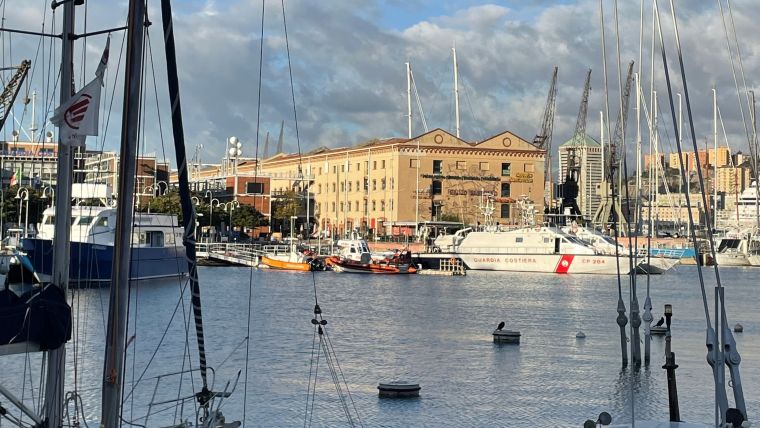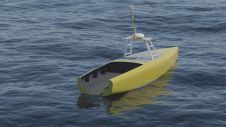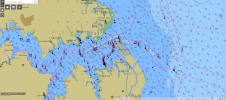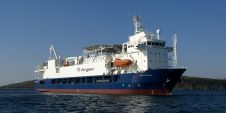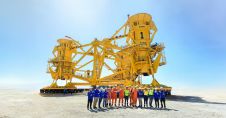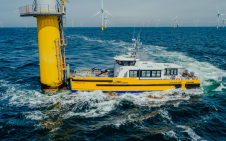On the key role of the hydrographer of tomorrow
Hydro 2023, Genoa, Italy
Hydro 2023 took place from 7 to 9 November in the beautiful port city of Genoa in Italy. Organizers of this year’s edition of the hydrographic conference were the International Federation of Hydrographic Societies (IFHS) and the Italian Hydrographic Society (IHS). Some 140 delegates took part in the three-day conference, while around 20 companies showcased their products and services in the exhibition area.
President of the IFHS David Vincentelli and president of the IHS Aldo Monaca opened the conference on Tuesday morning, followed by a keynote from IHO Director John Nyberg on transforming hydrography towards 2030. Nyberg warned the delegates that he would be back later the same morning, in a session that turned out to be one of the most interactive of the conference. The topic of this session was ‘the hydrographer of tomorrow’. A lively discussion took place on how to include young people in the profession, how to work beyond borders, how to educate future generations of hydrographers, and the discrepancy between the portrayal of the profession and the day-to-day work. Nyberg promised to pursue the discussion further with an article in a future edition of Hydro International. Following this, Denis Hains captivated the audience with his keynote on citizen hydrospatial sciences.
Presentations held on the Tuesday included one by Annette Wilkinson on the journey of collaboration and partnerships for hydrographic surveys in New Zealand, and a joint presentation by Benjamin Barbier (Teledyne) and Terje Haga Pedersen (Kongsberg) on empowering the remote workforce, highlighting new workflows that support the changing needs of the hydrospatial industry. Duncan Mallace of XOCEAN held a presentation on how to enable USVs to use the same equipment as a traditional survey vessel, and Rafael Ponce of the Hydrographic Society of America discussed the sedimentation process and its impact on navigation safety, port efficiency and dredging operations. A welcome cocktail at the stunning sea aquarium of Genoa, next to the congress building, ended a full day of lectures.
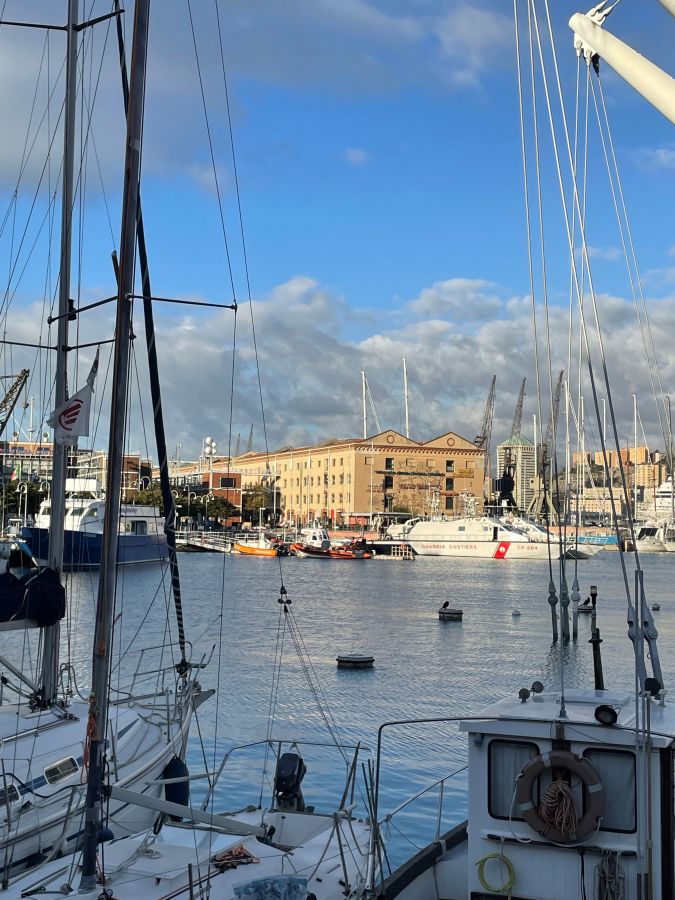
Cables and cybersecurity
Wednesday saw some interesting presentations on the world of transoceanic cables and the role that hydrography plays in this rapidly growing sector, increasing possibilities for communication and energy links between continents. The attack on the Nordstream pipeline in the Baltic Sea earlier this year showed the timeliness of the presentation on cybersecurity for underwater installations by Sonja Grosso of the Italian Hydrographic Institute. Several researchers also got the chance to present their projects via poster presentations. A technical tour onboard the Galatea unfortunately had to be cancelled due to bad weather conditions and rough seas. However, good food being imperative in Italy, the day was concluded with a conference dinner that made sure that everyone soon forgot about the missed opportunity to go out on the Mediterranean.
Black smokers and sea ice
Thursday, the closing day of this year’s Hydro 2023, saw a leading role for researchers from the HafenCity University in Hamburg. Tanja Dufek gave a presentation on exploring hydrothermal venting sites, or ‘black smokers’, and her colleague Ellen Werner showed the complexity of measuring sea-ice thickness using acoustic sensors. The IFHS Student Award was presented by David Vincentelli to Manuela Ammann of the University of Applied Sciences and Arts Northwestern Switzerland, for her MA thesis on the robotic photogrammetric underwater inspection of hydropower. Finally, in the last keynote of the conference, Louis Demargne of IOC-UNESCO called on hydrographers, acknowledging their key role in reversing the ocean’s declining health. This was a neat end to a conference that began with John Nyberg’s hydrographer of tomorrow, who will need to take on this key role.
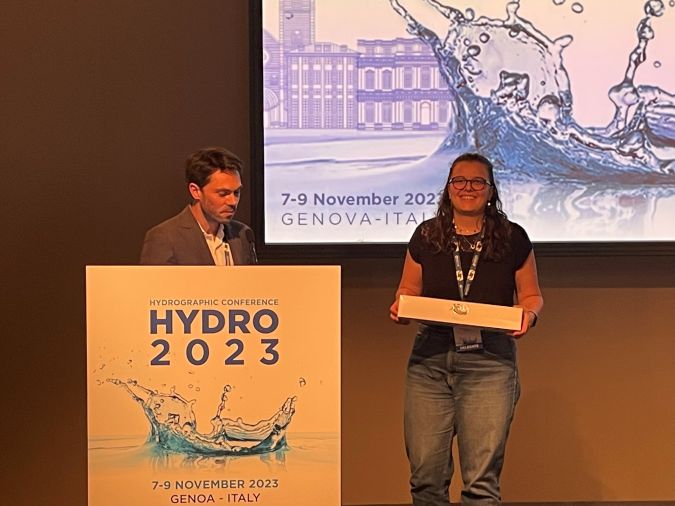
Towards Rostock
Genoa is the focal point of the Italian hydrographic scene as well as a maritime and offshore springboard for many companies. Besides trade, the port is also home to pleasure yachting and fisheries, and therefore is one of the liveliest ports in the Mediterranean. Genoa Port, with the congress centre in its midst, was therefore the perfect place to organize the annual Hydro conference, a seminal fixture on the calendar of the hydrographic year. On a critical note, it was a shame that not more of the relevant industries from this part of Italy showed up to participate in the discussion on what hydrography can mean for their businesses. Looking beyond the borders of hydrography to broaden the scope and increase business opportunities while working towards a better and healthier ocean is an opportunity that we should not waste. Furthermore, with the increasing cost of living, it is also important to ensure that conferences like this are accessible for all, especially the younger generation that could benefit from these gatherings, both for professional and networking purposes.
At the end of the conference, an official handover to DHyG, the German Hydrographic Society, marked the beginning of the organizational year working towards Hydro 2024 in November 2024 in Rostock, Germany. However, time was first taken to thank the Italian Hydrographic Society, the International Federation of Hydrographic Societies and all the exhibitors for making this special Hydro 2023 event possible.


Value staying current with hydrography?
Stay on the map with our expertly curated newsletters.
We provide educational insights, industry updates, and inspiring stories from the world of hydrography to help you learn, grow, and navigate your field with confidence. Don't miss out - subscribe today and ensure you're always informed, educated, and inspired by the latest in hydrographic technology and research.
Choose your newsletter(s)
